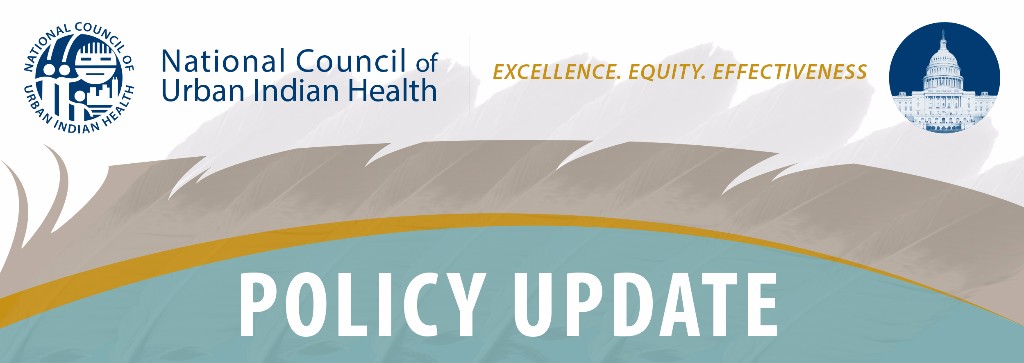
Policy Alert: Senate Passes Bipartisan Infrastructure Bill with Amendment to Support Urban Indian Health
The amendment garnered bipartisan support to allow UIOs to use existing funds for necessary infrastructure projects.
Source: National Council of Urban Indian Health
Today, August 10, the Senate passed the bipartisan infrastructure bill with a vote of 69-30. The bill includes the Padilla-Moran-Lankford amendment, which will allow Urban Indian Organizations (UIOs) to use existing resources to fund infrastructure projects to better serve patients and families. Last week, the urban Indian health amendment was the first amendment in the infrastructure package to get voted on in the Senate, and it passed with overwhelming support with a vote of 90-7. The National Council of Urban Indian Health (NCUIH) worked on this technical legislative fix to support better health care for Tribal members who reside off of reservations. The package did not include the $21 billion Native health infrastructure ask, but does include $11 billion for Native communities.
“We applaud Senators Padilla, Moran, Lankford, Rounds, Smith, Feinstein, Schatz, and Schumer for their steadfast and tireless leadership on behalf of Indian Country. This technical fix will be critical to expanding health care infrastructure for Native communities who have been devastated by the COVID-19 pandemic,” said Francys Crevier (Algonquin), CEO of NCUIH.
“Native communities’ critical infrastructure needs, such as sanitation, transportation, water settlements, and broadband, have been well documented – yet underfunded – for decades. After COVID hit, it became clear that robust federal investment to build new and update existing infrastructure in Native communities was essential,” said Senate Committee on Indian Affairs Chairman Brian Schatz (D-HI). “The more than $11 billion for Native communities is proof positive that we can come together, on a bipartisan basis, to get things done. But our efforts don’t end today – we have more work to do to better represent and serve Native communities across the country.”
The Senate Committee on Indian Affairs provided the following overview of Indian Country inclusions in the package:
- $3.5 billion for the Indian Health Service (IHS) Sanitation Facilities Construction Program
- $3 billion for the US Department of Transportation Tribal Transportation Program
- $2.5 billion to address approved Indian water rights settlements
- $2 billion for the National Telecommunications and Information Administration Tribal Broadband Connectivity Program to expand broadband access on Tribal lands and Hawaiian Home Lands
Next Steps
The bill will be sent back to the House for consideration.
Special thanks also to @RepRubenGallego and @RepDonBacon for their lead sponsorship in this initiative to improve care facilities for the 70% of AI/AN persons who live in urban areas. pic.twitter.com/9vAxk4tuTo
— National Council of Urban Indian Health (@NCUIH_Official) August 4, 2021
Background and Advocacy
UIOs lack access to facilities funding under the general IHS budgetary scheme, meaning there is no specifically allocated funding for UIO facilities, maintenance, sanitation, or medical equipment, among other imperative facility needs. Section 509 of the Indian Health Care Improvement Act (IHCIA) currently permits the IHS from providing UIOs with funding for minor renovations by mandating that funding only be provided to UIOs that meet or maintain compliance with the accreditation standards set forth by The Joint Commission (TJC). These restrictions on facilities funding have ultimately prevented UIO facilities from obtaining the funds necessary to improve the safety and quality of care provided to American Indian/Alaska Native (AI/AN) persons in urban settings. This amendment removes this restriction to allow UIOs to use existing federal dollars on necessary facility needs.
- PRESS RELEASE: Bipartisan Padilla-Moran-Lankford NCUIH Amendment for Urban Indian Health Passes Senate (August 2, 2021)
- Urban Indian Health Facilities Provider Act (H.R. 3496) introduced by Congressman Ruben Gallego (D-AZ) and Congressman Don Bacon (R-NE)
- Urban Indian Health Facilities Provider Act (H.R. 3496) introduced by Senators Alex Padilla (D-CA), James Lankford (R-OK) along with co-sponsors Moran (R-KS), Feinstein (D-CA), and Smith (D-MN)
- NCUIH testimony before the House Natural Resources Subcommittee for Indigenous Peoples of the United States (SCIP) and the Senate Committee on Indian Affairs (SCIA) in support of the Urban Indian Health Facilities Provider Act (H.R. 3496 / S. 1797)

